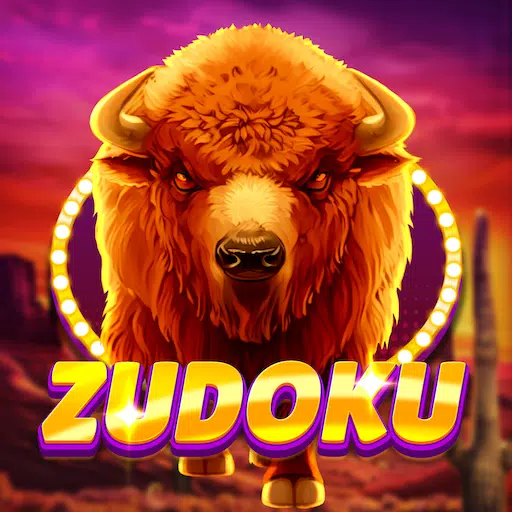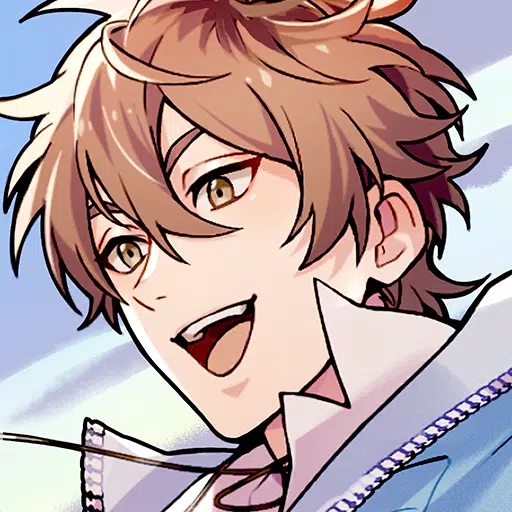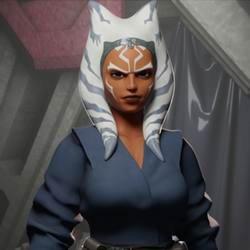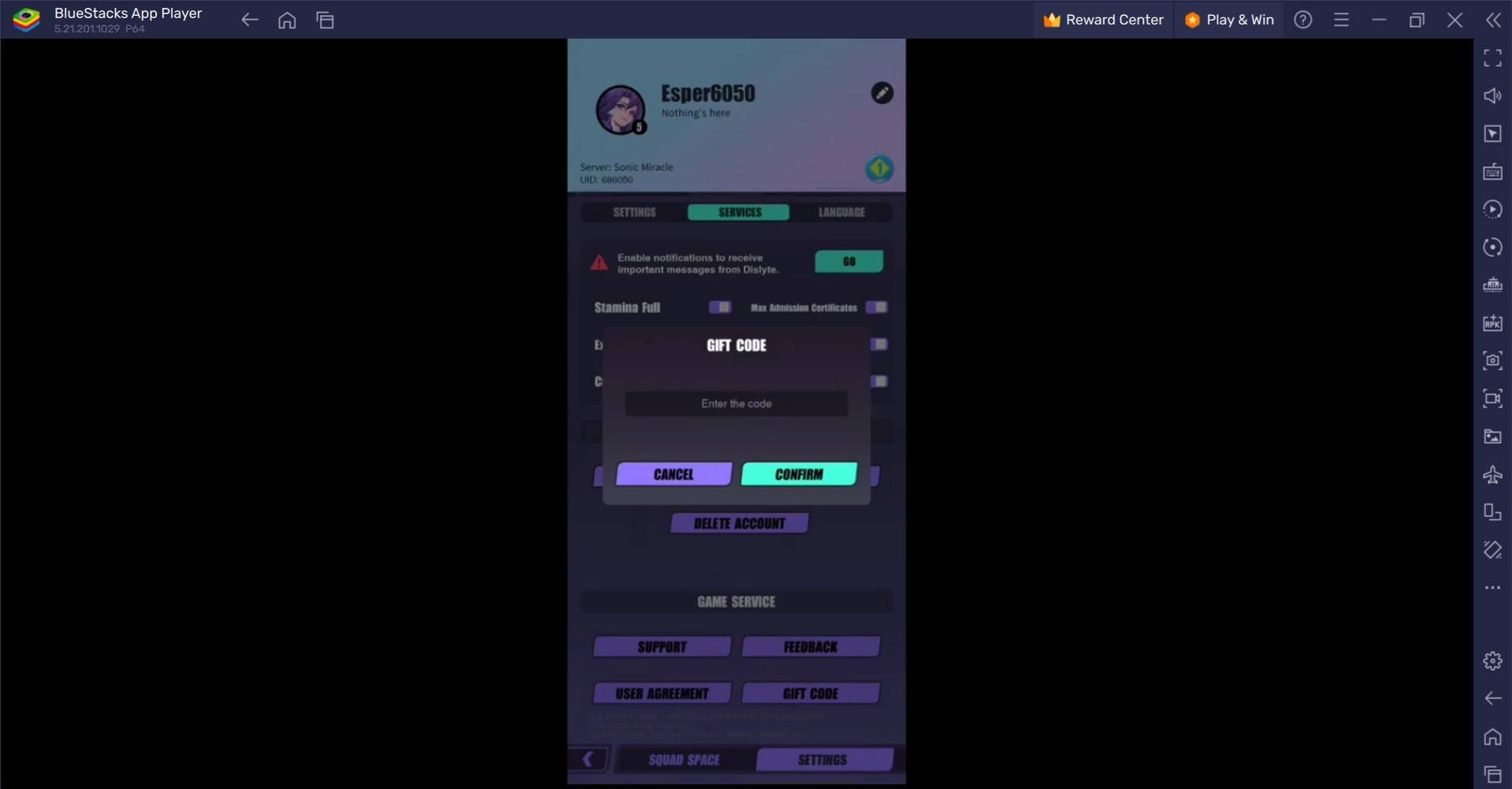With Monster Hunter Wilds breaking Steam records and Resident Evil achieving unprecedented popularity thanks to Village and a series of stellar remakes, it's as if Capcom can do no wrong. Yet, less than a decade ago, Capcom faced a dire situation following a series of critical and commercial flops, losing both its direction and its audience.
Capcom was grappling with an identity crisis. The survival horror genre, which Resident Evil had pioneered, seemed to lose its edge after Resident Evil 4. Meanwhile, Street Fighter, another major franchise, struggled with the lukewarm reception of Street Fighter 5, teetering on the brink of irrelevance. It was a critical juncture that threatened the future of Capcom's beloved games.
However, amidst these challenges, Capcom embarked on a transformative journey. A shift in their game development approach, bolstered by a powerful new game engine, breathed new life into their iconic series. This strategic pivot not only revived their franchises but also set the stage for years of critical and financial success, propelling Capcom back into the gaming industry's forefront.
Resident Evil Lost Its Way
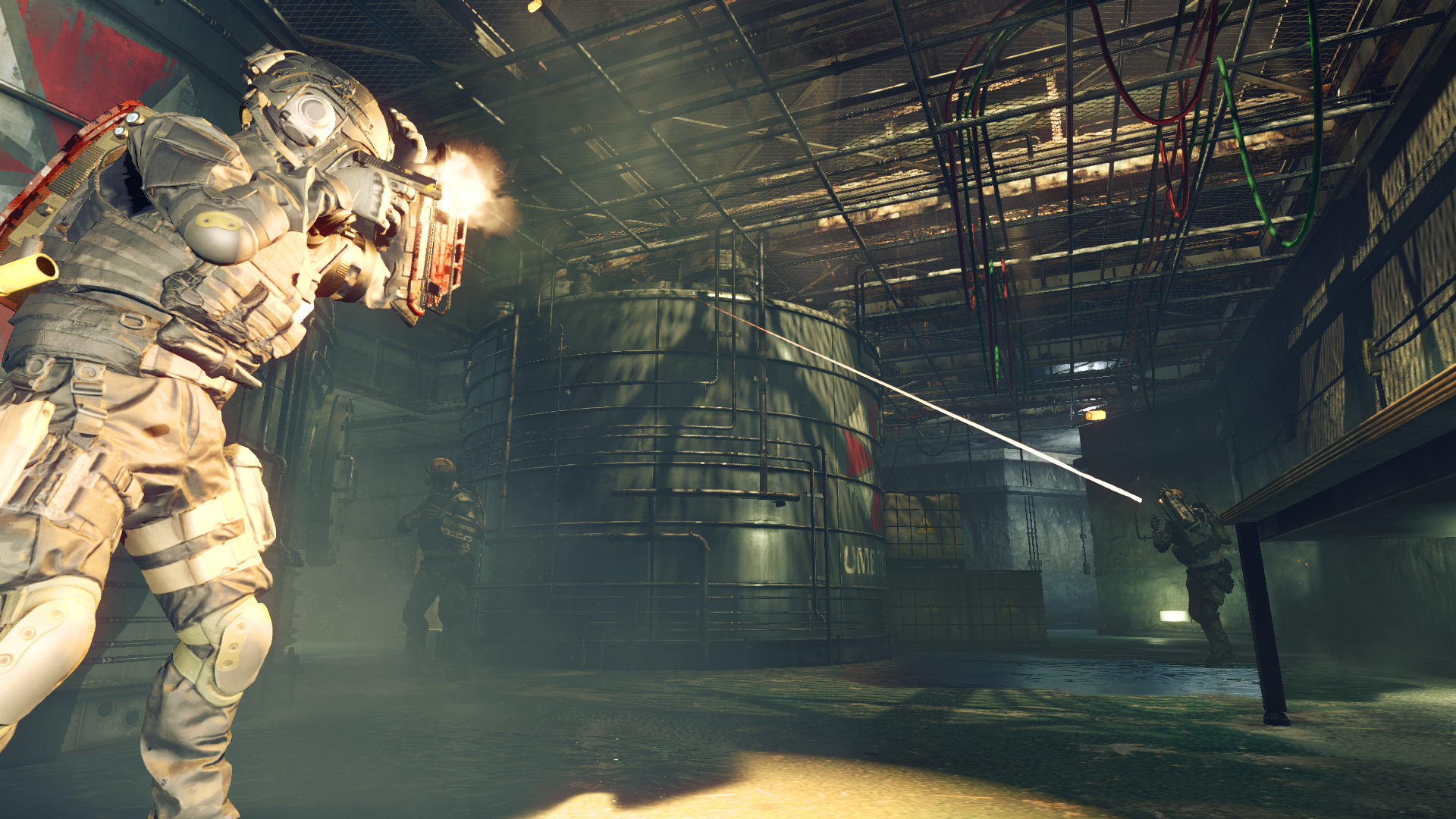
2016 was a challenging year for Capcom. The release of Umbrella Corps, an online co-op shooter, was met with harsh criticism from both reviewers and fans. Similarly, Street Fighter 5 left longtime fans disappointed, and Dead Rising 4, despite featuring the return of Frank West, would be the last new entry in the series.
This period represented the nadir of a challenging era for Capcom, which had been struggling since 2010. The mainline Resident Evil games received increasingly poor critical reception despite strong sales, and Street Fighter was faltering. Other key franchises like Devil May Cry were absent, while Monster Hunter, though immensely popular in Japan, faced challenges in penetrating international markets.
"Many of us started feeling that what the fans and players wanted from the series was getting a little bit separate from what we were making," said one developer. This sentiment starkly contrasts with Capcom's recent success. Since 2017, the company has consistently delivered hit games from its flagship franchises, including Monster Hunter World, Devil May Cry 5, Street Fighter 6, and a series of acclaimed remakes and a soft reboot of the Resident Evil series. Capcom's recent track record suggests a newfound inability to fail.
Achieving this success required more than just learning from past mistakes. Capcom had to completely overhaul its strategy, from targeting specific player demographics to adopting new technology. To understand this dramatic transformation, IGN interviewed four of Capcom's leading creatives to explore how the company stumbled, recovered, and emerged stronger than ever.
Founded in 1979 as a maker of electronic game machines, Capcom rose to prominence in the 80s and 90s with 2D classics like Street Fighter and Mega Man. The transition to 3D gaming with titles like Resident Evil marked another milestone. Between 2000 and 2010, Capcom successfully modernized its major franchises, culminating in the release of the highly acclaimed Resident Evil 4.
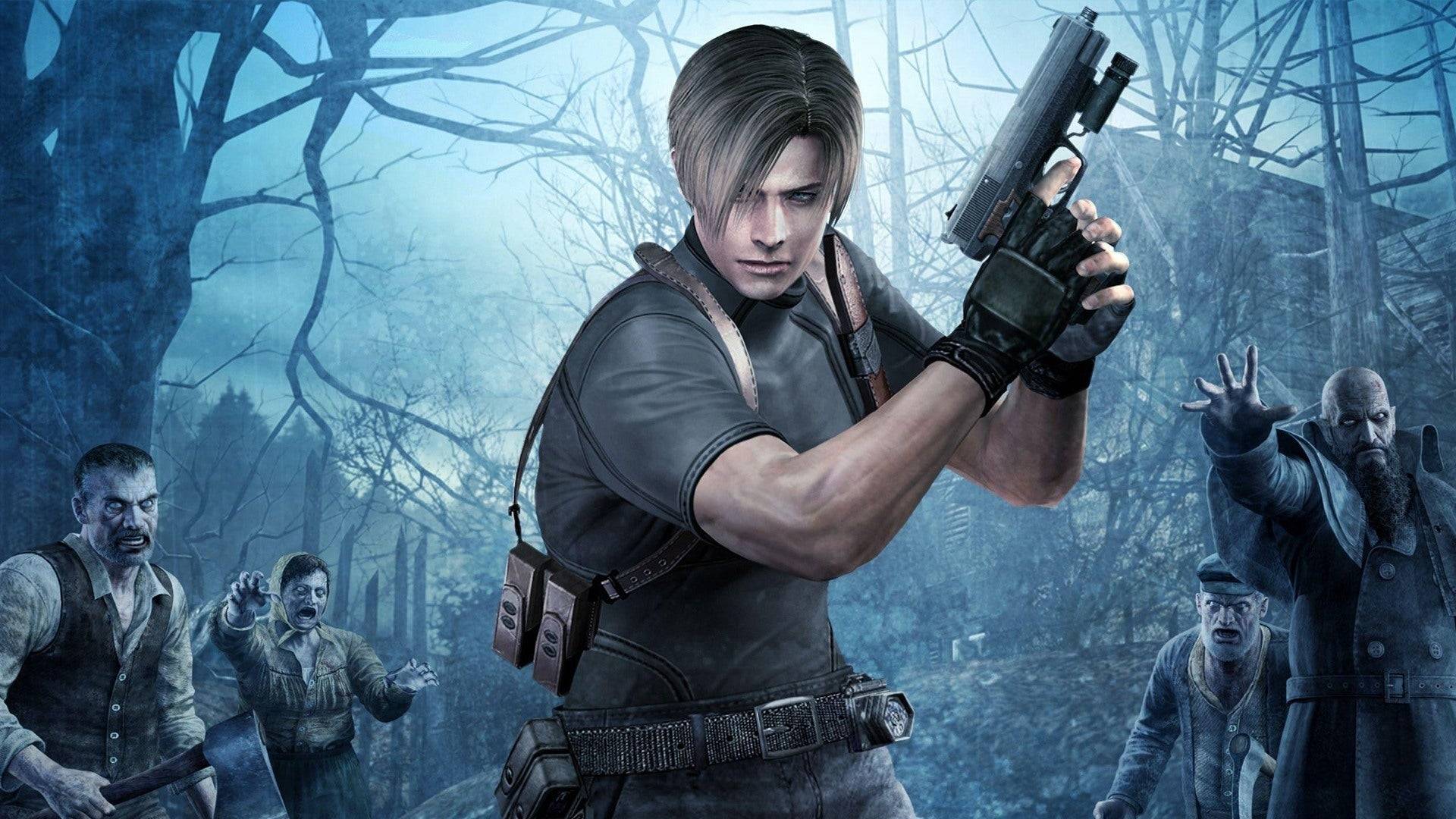
Resident Evil 4, released in 2005, is often hailed as a masterpiece, blending horror with action in a way that captivated players. However, subsequent games struggled to maintain this balance. Resident Evil 5, for example, veered too far into action territory, with sequences more reminiscent of Hollywood blockbusters than horror games. This shift away from the series' horror roots was noted by both players and developers, including Resident Evil 4 remake director Yasuhiro Ampo, who has been with the series since 1996.
"Overall throughout the Resident Evil series, we set up different goals, challenges, and things we want to try with each game… But this time, many of us started feeling that what the fans and players wanted from the series was getting a little bit separate from what we were making," Ampo explained.
This confusion led to games like Resident Evil 6, which attempted to cater to both action and horror fans but failed to satisfy either group fully. Similarly, Capcom's Street Fighter series faced challenges with Street Fighter 5, which launched with limited content and poor online functionality, disappointing fans who expected more from the sequel to the acclaimed Street Fighter 4.
The struggles weren't limited to Resident Evil and Street Fighter. Other key franchises, like Devil May Cry, also faced challenges. The series' next installment, DmC: Devil May Cry, was outsourced to Ninja Theory and received mixed reactions, leading to a pause in the series' development.
Throughout the early to mid-2010s, Capcom's efforts to capture the Western market with games like Lost Planet and Asura's Wrath fell flat. Despite occasional successes like Dragon's Dogma, the company's focus seemed scattered, and it was clear that a change was necessary.
Street Fighter 5, The Lost Cause
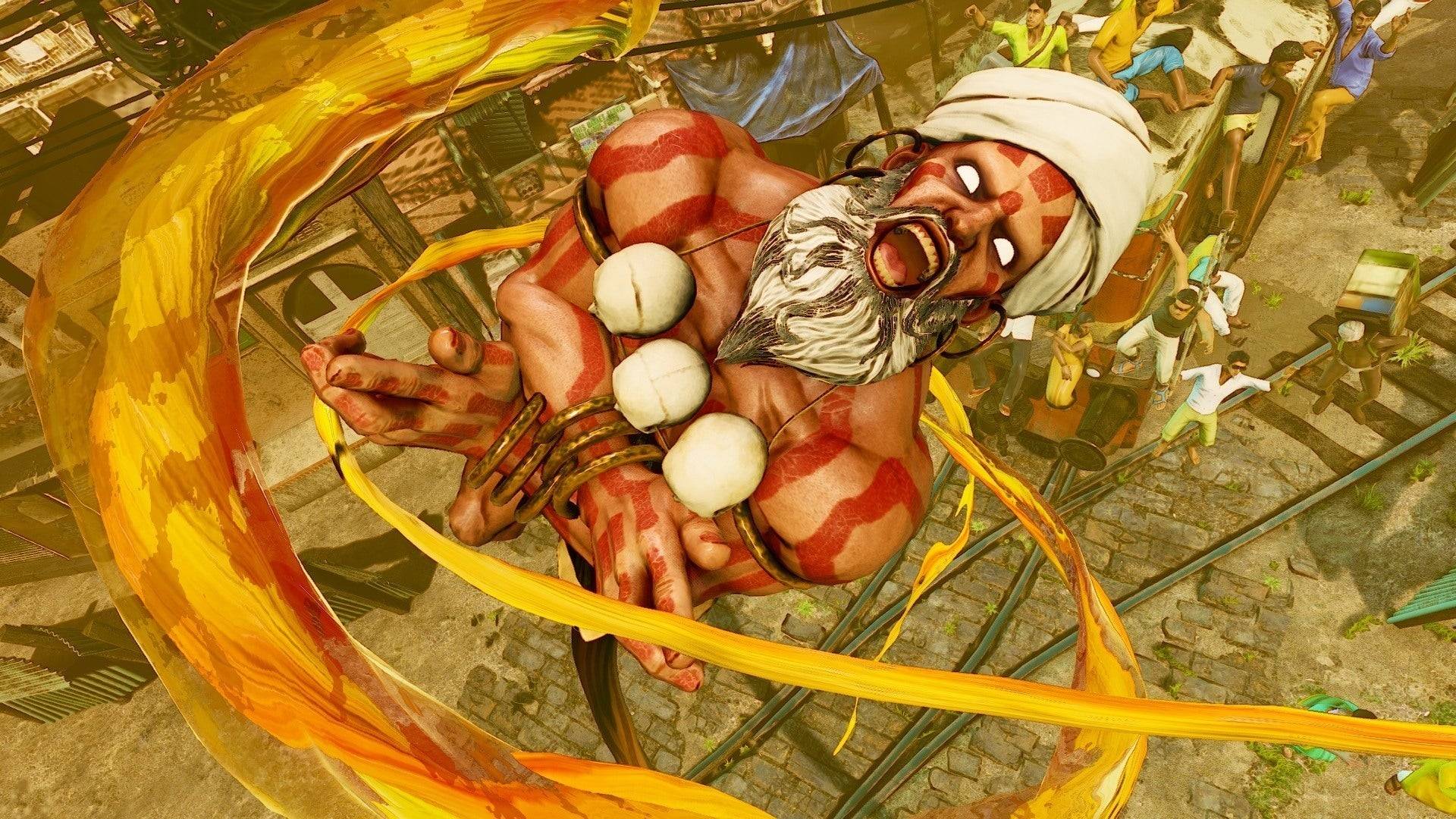
By the mid-2010s, Capcom began implementing strategic changes that would alter its trajectory. The first step was addressing the immediate issues with Street Fighter 5. Directors Takayuki Nakayama and producer Shuhei Matsumoto were tasked with stabilizing the game.
"There definitely were some challenges within the production of the game, and that was part of the reason why I was brought into the team," Nakayama admitted. "And because we were at a point in development where we couldn't really make any major pivots or shifts, we had to proceed and move forward in the direction we were currently in, which created constraints on what we could and couldn't do."
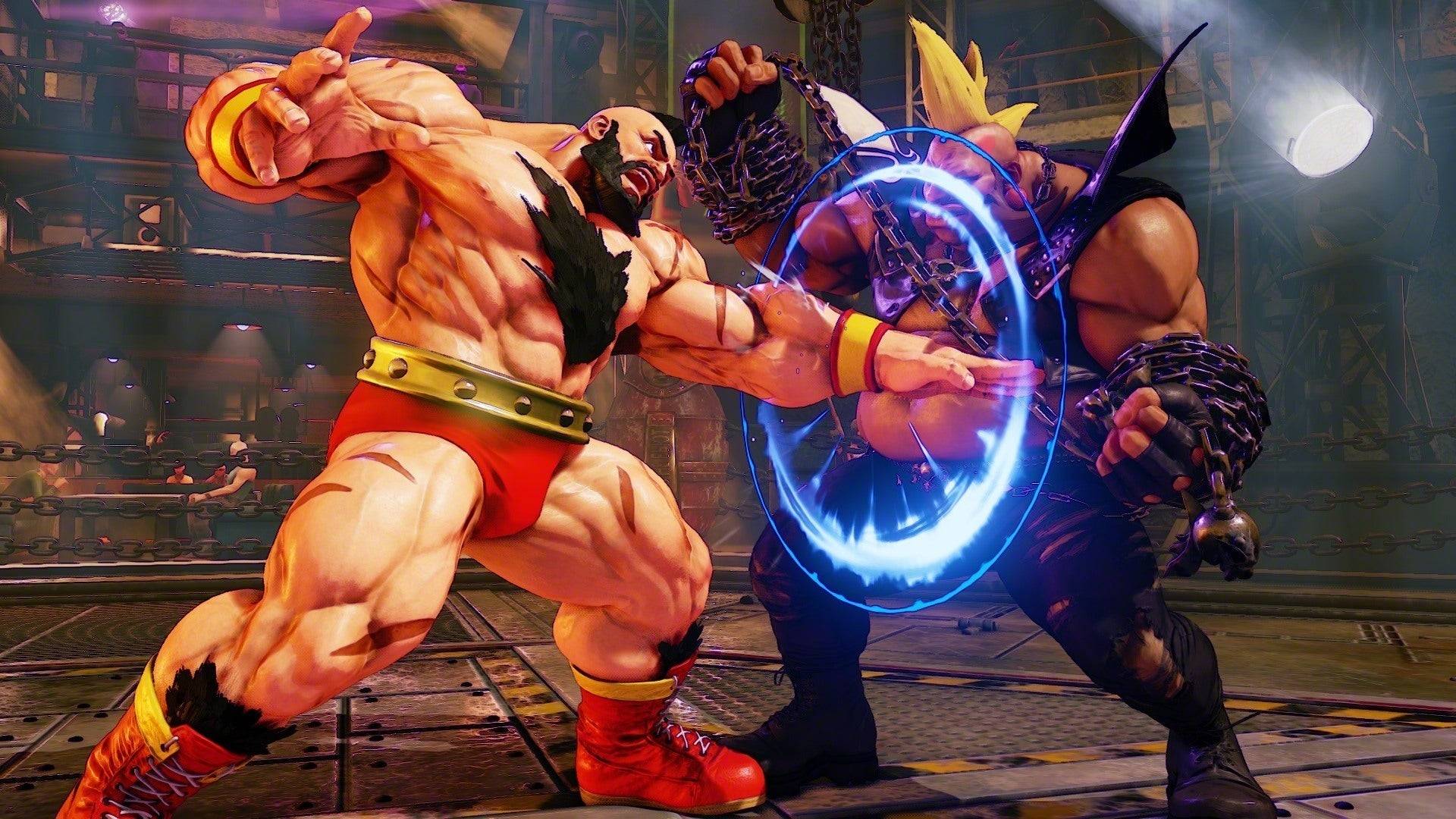
These constraints limited the scope of improvements, and much of Nakayama's work focused on fixing the game's most pressing issues. "We just didn’t really have enough time to address some of the problems and challenges we faced in Street Fighter V," he said. "And so, with our hands tied behind our backs, we basically had to wait for those ideas to be brought back for the initial conceptual phases for Street Fighter 6, so we could tackle and do things properly for the next title."
Matsumoto explained that abandoning Street Fighter 5 wasn't an option. "There wasn’t any sort of sense of like, ‘Okay let’s just end Street Fighter 5 and focus on Street Fighter 6.’ It was more like, while we were working on Street Fighter V, we were trying to figure out what we really wanted to do in Street Fighter 6 content-wise," he said.
Street Fighter 5 was used as a testing ground to refine ideas for the sequel. The team made numerous updates, from improving netcode to introducing new mechanics like V-Shift, which provided a brief window of invincibility. The overarching goal was to rediscover the fun in fighting games, as Street Fighter 5 had become frustrating for many players.
"We both realized that fighting games are fun, and when you get used to them, it becomes more enjoyable and something you can essentially play forever as long as you have an opponent to play against," Matsumoto said. "However, one of the challenges that we faced with Street Fighter V is that we felt that there wasn’t a clear pathway that helped guide players to get to that level where they finally feel like they’re having fun and will want to continue playing."
Street Fighter 6 took a different approach by offering tools for new players while retaining the elements that seasoned fans loved. By using Street Fighter 5 as a testbed, Capcom ensured that Street Fighter 6 launched as one of the most critically acclaimed games in the franchise.
However, Capcom needed more than just fixes for Street Fighter 5. A significant shift in strategy was necessary to prevent future disasters, which led to vital behind-the-scenes changes.
Monster Hunter Took Over The World
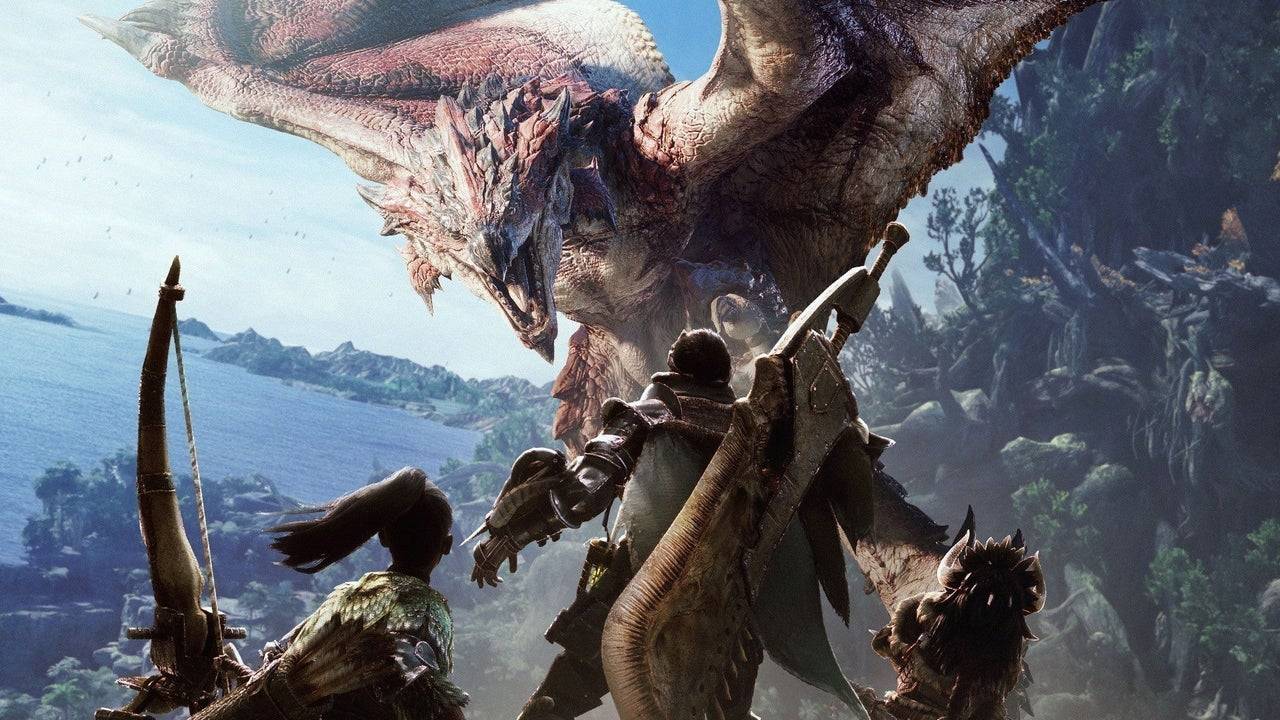
Around the time of Street Fighter 5's launch in 2016, Capcom underwent an internal reorganization to prepare for a new generation of games. These games would run on the company's new RE Engine, replacing the aging MT Framework. This shift was not just about technology but also about creating games that appealed to a global audience.
"It was a few factors that came together," said Hideaki Itsuno, a former game director at Capcom known for his work on Devil May Cry. "The change of the engine and also all teams were given a very clear goal at that point to make games that reach the global market. [Games] that are fun for everyone."
During the PS3 and Xbox 360 era, Capcom attempted to cater to the Western market with action-heavy titles like Resident Evil 4 and spinoffs like Umbrella Corps. However, these efforts were largely unsuccessful. The company realized the need to create games that appealed to a broader, global audience.
"I think that we had that clear goal of just focusing and not holding anything back," Itsuno said. "Towards making good games that would reach people from all over the world."
This shift was pivotal, and the launch of Resident Evil 7 in 2017 marked the beginning of Capcom's renaissance. No series better exemplified this new goal of global success than Monster Hunter, which, despite its dedicated Western fanbase, was predominantly popular in Japan.
Monster Hunter's success on the PSP with Monster Hunter Freedom Unite was largely due to the strong handheld gaming market in Japan. "20 years ago in Japan, having a network connection wasn't as easy, and there weren’t a huge amount of people playing Monster Hunter online," said executive producer Ryozo Tsujimoto. "However, handheld consoles made multiplayer gameplay easy without internet access, and I regard it as a great success that we had players experience the game in this way, which was one of the ways we really wished for them to play and enjoy it, even in that era when online gameplay wasn't easy."
Monster Hunter's focus on cooperative play was best served on handhelds, which inadvertently made it a Japan-centric franchise. However, as the Western world's internet infrastructure improved, Capcom saw an opportunity to launch Monster Hunter: World in 2018 on PlayStation 4, Xbox One, and PC.
"Our approach to the globalization of the series and Monster Hunter in general really ties into not only the themes that we had going into designing the game, but also in the name of the game," Tsujimoto revealed. "The fact that we called it Monster Hunter: World is really kind of a nod to the fact that we wanted to appeal to this worldwide audience that we wanted to really dig into and experience Monster Hunter for the first time."
Monster Hunter: World was designed to avoid favoring any single market, with simultaneous global releases and no region-exclusive content. "For World, we conducted focus tests across the world, and some of the feedback and opinions that we got during that process really affected how we designed our game systems and impacted how much success we had globally," Tsujimoto said.
These global focus tests led to significant changes, such as displaying damage numbers when players hit monsters. These tweaks helped Monster Hunter: World and its follow-up, Monster Hunter Rise, achieve sales of over 20 million copies each.
"At its heart, Monster Hunter really is an action game, and that sense of accomplishment you get from really mastering that action is an important aspect of Monster Hunter," Tsujimoto explained. "But for newer players, it's really about getting to that point. The steps involved in getting to that sense of accomplishment is what we're trying to strategize for, in terms of designing for new players. So with World and Rise, for example, we were taking great care to analyze where players got stuck, what was hard to understand, what they were having trouble with, getting player feedback, and also doing our own kind of research into that. And all of that kind of knowledge has impacted how we've implemented new systems into Wilds."
Resident Evil 7 Began Turning Things Around
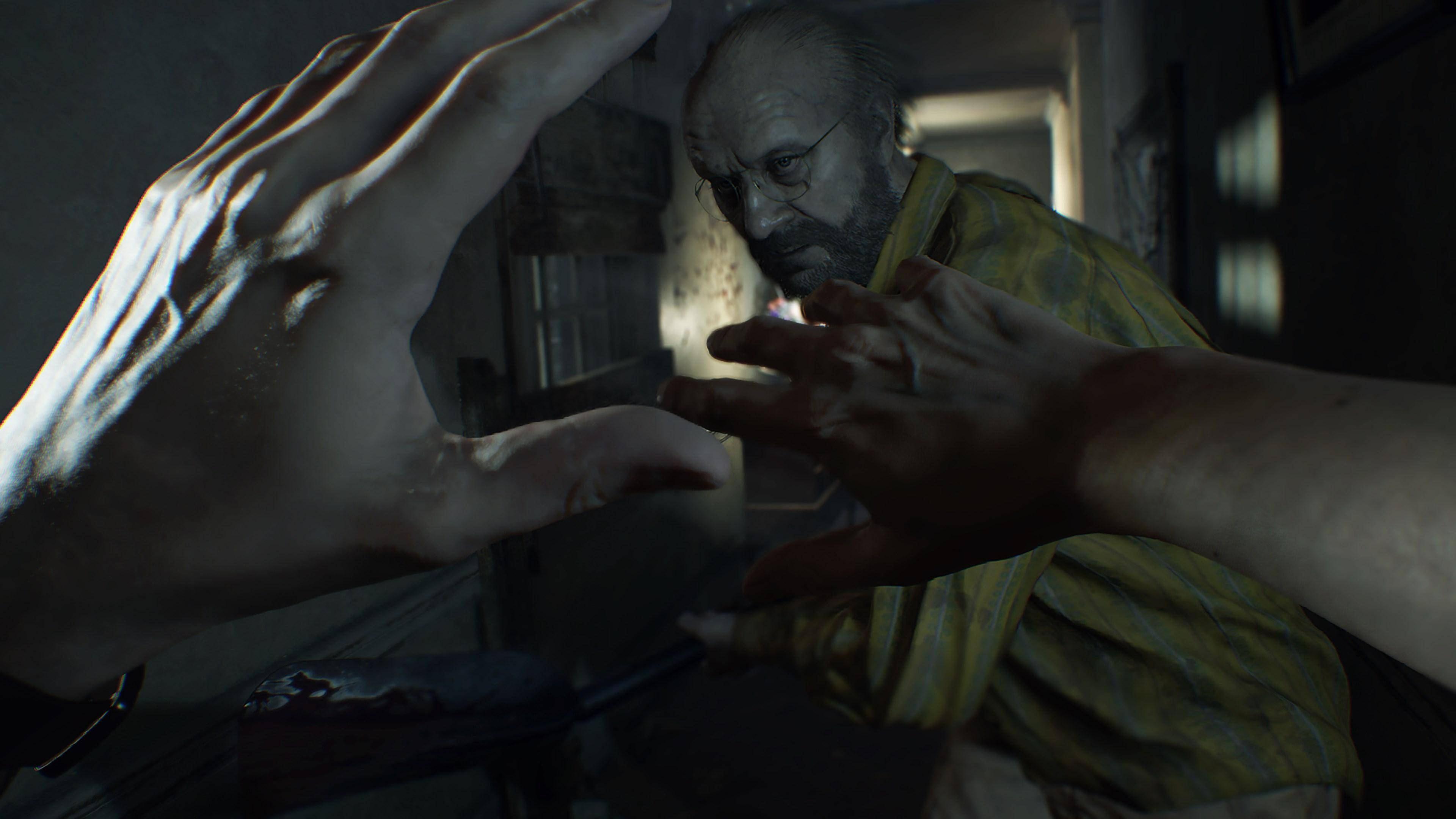
Monster Hunter had a winning formula, but convincing global audiences to embrace it was challenging. The same was true for Resident Evil, where the development team had to decide whether to focus on gory action or survival horror. Executive producer Jun Takeuchi made the decisive call to return to the series' roots.
"It was around the time I was working on Resident Evil Revelations 1 and 2. I was trying to test different things, try different approaches," said Resident Evil 2 and 4 Remake director Yasuhiro Ampo. "And around this time is when the R&D teams were divided into R&D division one and two. The executive producer of the Resident Evil series, Jun Takeuchi, took command of R&D division one, and he set the core direction that the Resident Evil series needed to go back to its origins, to its roots."
Takeuchi's decision to focus on survival horror was vindicated with the announcement of Resident Evil 7 at PlayStation's E3 2016 conference. The game's first-person perspective, combined with its return to horror, rekindled the series' scare factor.
"With Resident Evil 7, the executive producer, Jun Takeuchi, made it clear that we cannot underestimate how critical it is for the series for it to be scary and about survival. So he made it clear that Resident Evil 7 would go back to its origins, it would be very cautious with its survival elements. And with that as a basis, then we would try new and different things," Ampo said.
Resident Evil 7 was a resounding success, reviving the series' focus on survival horror. While not as universally acclaimed as Resident Evil 4, it was one of the scariest games in the franchise. Capcom also planned to release third-person remakes, starting with Resident Evil 2, in response to fan demand.
"It was like, ‘all right people really want this to happen.’ So producer [Yoshiaki] Hirabayashi came up with the slogan: ‘Well, we’ll do it,’" Ampo revealed.
The Resident Evil 2 remake was a critical and commercial success, blending horror with action and puzzles. It became the second best-selling game in the franchise. Following this, Capcom released a Resident Evil 3 remake and, despite initial hesitations, a Resident Evil 4 remake.
"As you mentioned, [Resident Evil 4] was still a title that enjoyed some popularity. So there was a lot of internal discussion on how maybe it’s not a good idea. Maybe we don’t need a remake for Resident Evil 4, especially because Resident Evil 4 is a game that is so beloved. If we get anything wrong with the remake, people might be quite vocal about their discomfort," Ampo said.
Despite these concerns, the Resident Evil 4 remake was a hit, fine-tuning the balance between action and horror to align with Takeuchi's vision of returning to survival horror roots.
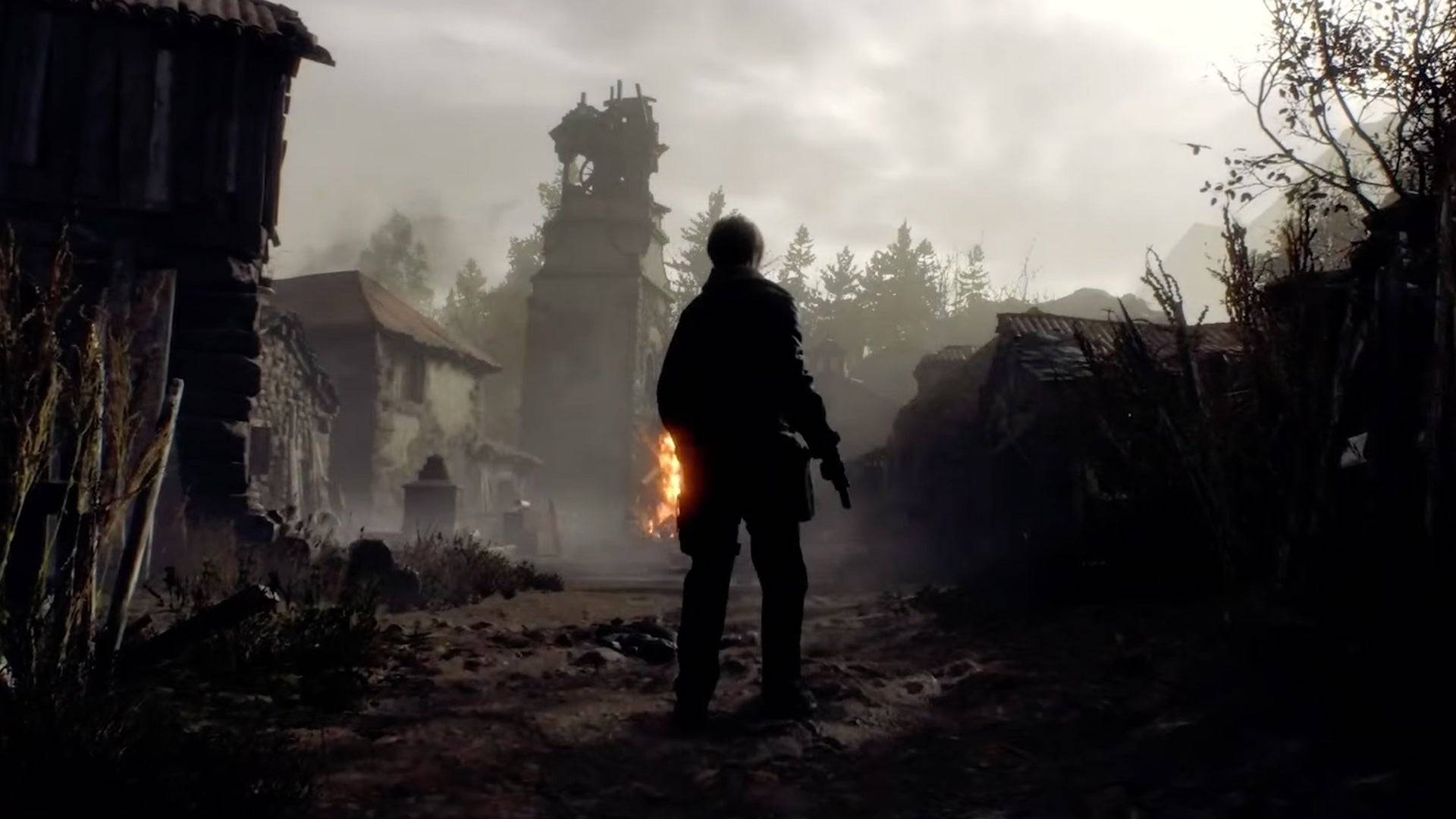
Simultaneously, Devil May Cry director Hideaki Itsuno sought to revitalize the action genre with Devil May Cry 5. After working on Dragon's Dogma, Itsuno aimed to challenge players with a game that was not "too kind," leveraging Capcom's powerful RE Engine.
The Reason Behind The Change
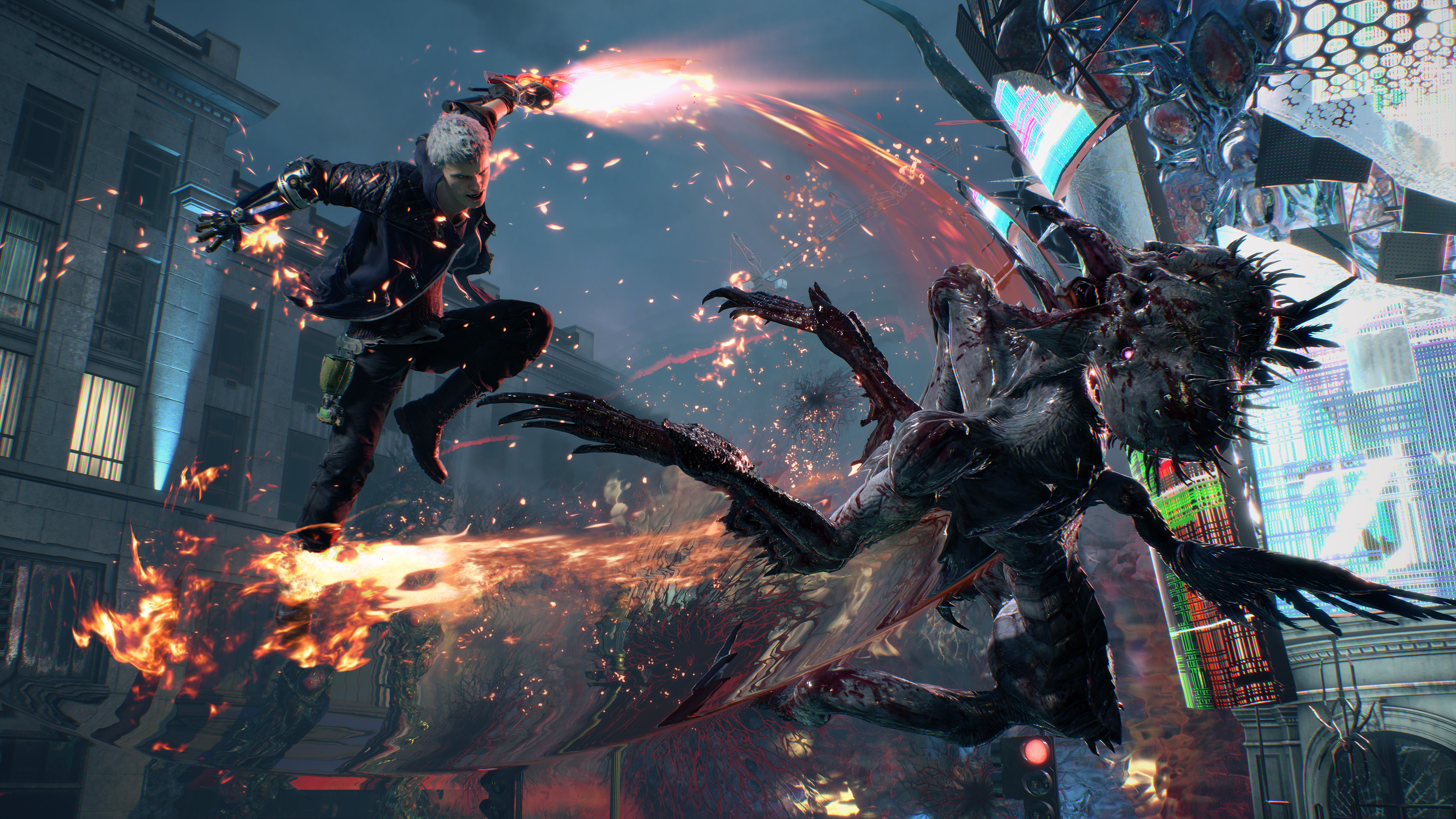
"I felt like the main trend with action games was to make action games that were very kind," Itsuno admitted. "Maybe, for me, a little bit too kind to the players, lending a hand to the player too much to my liking."
Itsuno, who had directed every Devil May Cry game since the second installment except for DmC, returned after a decade with a vision to create the "coolest" action game. The RE Engine, with its photorealistic capabilities and nimble development tools, allowed Itsuno to achieve his goal.
"Devil May Cry is a franchise that stands on being cool," Itsuno said. "That’s what the franchise is, it’s about being cool. Ever since I took over the series from Devil May Cry 3, I put everything that I, as a person, I considered throughout my life to be cool. Anything I’ve seen on TV, in movies, and comics I’ve read, any sport experiences I’ve had, I try to distill everything that I think is cool into what the game is."
A New Capcom Golden Age
Since 2017, Capcom has released a game of the year contender almost annually, a remarkable feat in an industry where consistency is rare. This success can be attributed to their focus on creating globally appealing games using the technologically advanced RE Engine, which supports a variety of genres.
Capcom's strategy of making mainstream, global games has not diluted their core identities. Instead, they have found a balance that maintains the essence of their franchises while expanding their audience. As other studios struggle to find their footing, Capcom's strategic changes have ushered in a new golden age that shows no signs of slowing down.
"Capcom is going through a golden era, and, well, now we have to do everything we can so that this lasts one more year, one more year, and every year, one more year," said Monster Hunter's Tsujimoto. "Hopefully we can extend it as long as we can."
 Home
Home  Navigation
Navigation






 Latest Articles
Latest Articles
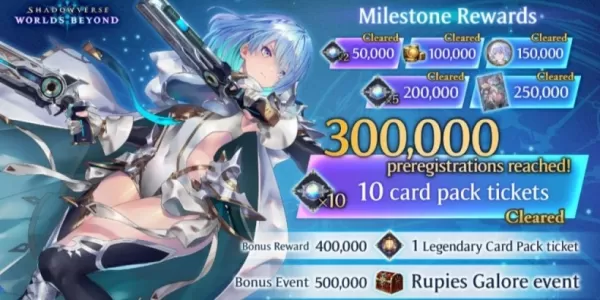








 Latest Games
Latest Games